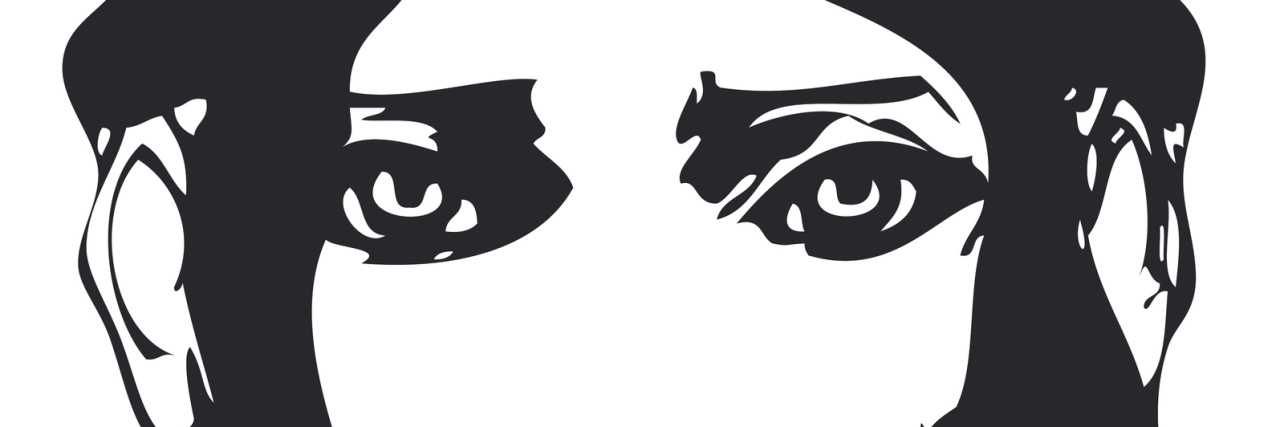Often when I see myself I feel like looking away. I catch a glimpse of my body in a glass window at the mall and I cringe. Despite so many people telling me how small or thin I am, or how pretty, I don’t believe them. When I look at the mirror I don’t see my body, I see what I think my body is. This is a delusion I have that is caused by my mental illness. My low self-esteem and insecurity trigger these feelings. Body dysmorphic disorder (BDD) is when someone might think their physical appearance is flawed, they obsess about it and have compulsions trying to control the negative thoughts about themselves. The varied degrees of symptoms can be worsened by mental illnesses like depression, eating disorders, and in my case bipolar disorder.
It’s a delusion, a false image of myself. I look in the mirror and I obsess about my arms, my chin and neck, my thighs, the little parts of myself that I hate. Parts that I over-analyze and focus on. It’s important for you to know that even though I feel bad about myself and how my body appears, I don’t actually feel that way about others. I think plus-size women are beautiful and all shapes and sizes are special and should be accepted and loved. Then why do I feel so negative when I see myself? It’s in my head; what I see is not the truth and when I’m feeling so bad, no matter how thin I get, I wouldn’t accept the reflection I see.
My friends and family get frustrated with my complaints and seeing me struggle with these delusions. It feeds into my anxiety about going out in public, my problems with personal hygiene, my insecurity and low self-esteem. I completely understand the frustration they feel, as I’ve felt that way with others. When I hear someone call themselves fat or ugly it’s so frustrating because I see the truth that they aren’t, but nothing external convinces them. That acceptance has to come from within. I am not obsessed with everyone’s physical appearance, that everyone has to be a certain way or look like a specific shape — it’s just about my own shape, my own weight, my own thoughts and feelings when I look in the mirror.
I think many people don’t understand that BDD is actually a mental illness, not vanity. The fact that our culture is so obsessed with appearances and we’re bombarded with unrealistic expectations doesn’t help. Still, without that, please hear me when I say it’s my brain sending me this false information. It’s my insecurity eating away at me, morphing my self-worth and self-esteem into something far from reality.
So what I want to tell you is that this is coming from inside me, this is something I have to literally face and work on. I have to accept my own truth, and while you can help me with encouragement and support, telling me I’m pretty over and over isn’t going to make these feelings go away. I want you to know that I don’t see my body the way you see it. And it’s not your fault, it’s not that you aren’t giving me enough reassurance or doing enough to make me feel better about myself — it’s my mental illness. I do need some patience and understanding from you though, because with time and the help of treatment I believe that myself and others who struggle with BDD can come to a place of acceptance.
We want to hear your story. Become a Mighty contributor here.
Thinkstock image via Benderonny

